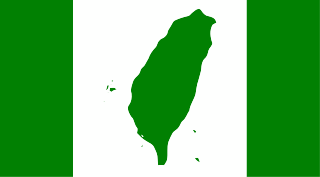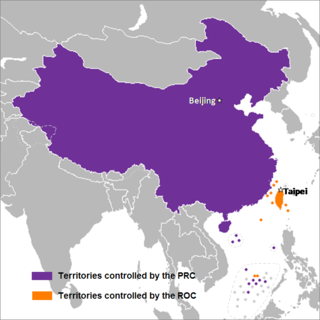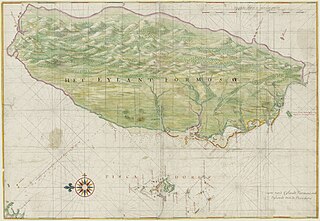
Taiwan, officially the Republic of China (ROC), is governed in a framework of a representative democratic republic under a five-power system first envisioned by Sun Yat-sen in 1906, whereby under the constitutional amendments, the President is head of state and the Premier is head of government, and of a multi-party system. Executive power is exercised by the Executive Yuan. Legislative power is vested primarily in the Legislative Yuan. The judiciary is independent of the executive and the legislature. In addition, the Examination Yuan is in charge of validating the qualification of civil servants, and the Control Yuan inspects, reviews, and audits the policies and operations of the government.

The Taiwan independence movement is a political movement which advocates the formal declaration of an independent and sovereign Taiwanese state, as opposed to Chinese unification or the status quo in Cross-Strait relations.

Chinese unification, also known as Cross-Strait unification or Chinese reunification, is the potential unification of territories currently controlled, or claimed, by the People's Republic of China and the Republic of China ("Taiwan") under one political entity, possibly the formation of a political union between the two republics. Together with full Taiwan independence, unification is one of the main proposals to address questions on the political status of Taiwan, which is a central focus of Cross-Strait relations.
The controversy surrounding the political status of Taiwan or the Taiwan issue is an ongoing dispute on the political status of Taiwan, currently controlled by the Republic of China (ROC). This dispute arose in the mid-twentieth century.
The term One China may refer, in alphabetical order, to one of the following:

Ma Ying-jeou is a Taiwanese politician who served as the 6th president of the Republic of China from 2008 to 2016. Previously, he served as the 14th justice minister from 1993 to 1996 and mayor of Taipei from 1998 to 2006. He served as chairman of the Kuomintang (KMT) from 2005 to 2007 and from 2009 to 2014.

As a result of the surrender and occupation of Japan at the end of World War II, the islands of Taiwan and Penghu were placed under the governance of the Republic of China (ROC), ruled by the Kuomintang (KMT), on 25 October 1945. Following the February 28 massacre in 1947, martial law was declared in 1949 by the Governor of Taiwan, Chen Cheng, and the ROC Ministry of National Defense. Following the end of the Chinese Civil War in 1949, the ROC government retreated from the mainland as the Chinese Communist Party (CCP) proclaimed the establishment of the People's Republic of China. The KMT retreated to Taiwan and declared Taipei the temporary capital of the ROC. For many years, the ROC and PRC each continued to claim in the diplomatic arena to be the sole legitimate government of "China". In 1971, the United Nations expelled the ROC and replaced it with the PRC.

The Straits Exchange Foundation is a semiofficial organization set up by the Government of the Republic of China (Taiwan) to handle technical and/or business matters with the People's Republic of China (PRC). Though technically a private organization, it is funded by the government and under the supervision of the Mainland Affairs Council of the Executive Yuan. Its role is effectively to function as the de facto embassy to the PRC, as a means of avoiding acknowledgement of the PRC's statehood status.

This is a timeline of the Republic of China.
The 1992 Consensus is a political term referring to the alleged outcome of a meeting in 1992 between the semiofficial representatives of the Chinese Communist Party (CCP)-led People's Republic of China (PRC) of mainland China, and the Kuomintang (KMT)-led Republic of China (ROC) of Taiwan. They are often credited as creating a diplomatic basis for semi-official cross-strait exchanges which began in the early 1990s and is a precondition set by the PRC for engaging in cross-strait dialogue.

Presidential elections were held in Taiwan on 22 March 2008. Kuomintang (KMT) nominee Ma Ying-jeou won with 58% of the vote, ending eight years of Democratic Progressive Party (DPP) rule. Along with the 2008 legislative election, Ma's landslide victory brought the Kuomintang back to power in the Republic of China.
The Three-Noes Policy was a policy established in April 1979 and maintained by President Chiang Ching-kuo of the Republic of China, commonly known as Taiwan, in response to the People's Republic of China's attempts to have direct contact with the ROC. When the United States broke diplomatic ties with the ROC in 1979, the PRC believed that it had complete leverage in convincing the ROC government to talk. President Chiang Ching-kuo refused, reiterating that there were to be "no contact, no negotiation and no compromise" (不接觸,不談判,不妥協) with the Chinese Communists.

Cross-Strait relations are the relations between China and Taiwan.

"Taiwan, China", "Taiwan, Province of China", and "Taipei, China" are controversial political terms that claim Taiwan and its associated territories as a province or territory of the People's Republic of China.

Taiwan Province, PRC refers to a notional administrative division claimed by the People's Republic of China. The PRC constitution asserts Taiwan as part of its territories although the PRC has never controlled Taiwan since the PRC's establishment in 1949. The territory of the claimed province, including the entire island of Taiwan, is in actuality administered by the Republic of China (ROC) but is not coextensive with the smaller Taiwan Province of the ROC.

The term "Two Chinas" refers to the geopolitical situation where two political entities exist under the name "China".

Lin Chu-chia or Steve Lin is a Taiwanese politician. He took junior positions at the Mainland Affairs Council before his 2016 promotion to concurrent posts as National Development Council head and Governor of Fujian Province.
The administrative divisions of China between 1912 and 1949 were established under the regime of the Republic of China government.

On 7 November 2015, Ma Ying-jeou, President of the Republic of China, and Xi Jinping, General Secretary of the Chinese Communist Party (CCP) and President of the People's Republic of China, met in Singapore. The meeting was the first between the political leaders of the two sides of the Taiwan Strait since the end of the Chinese Civil War in 1949 and the first since the meeting between Chiang Kai-shek and Mao Zedong in Chongqing during the Double Tenth Agreement in August 1945.

On 10 April 2024, Ma Ying-jeou, the former President of the Republic of China, and Xi Jinping, General Secretary of the Chinese Communist Party (CCP) and President of the People's Republic of China, met in Beijing. The meeting was the second meeting between Xi and Ma; the pair previously met in Singapore in 2015, when Ma was still the incumbent president. The meeting was part of Ma's 2024 visit to mainland China, his second visit during his post-presidency.















